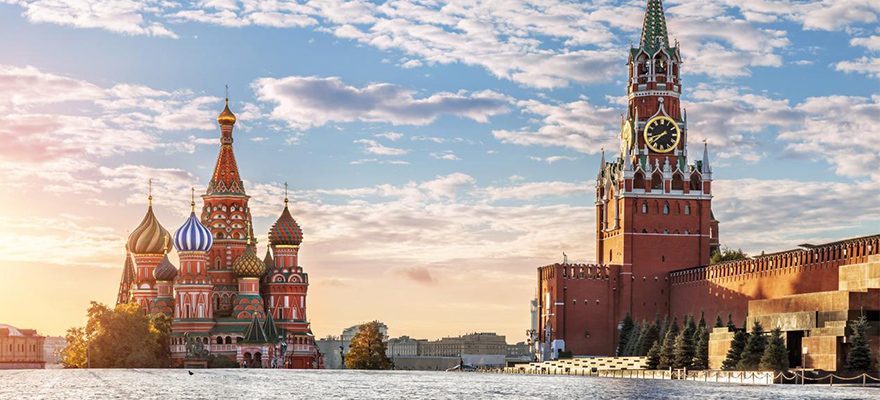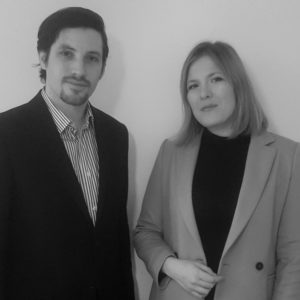

Sébastien Lachaussée & Elisa Martin-Winkel
Coproducing between France and Russia and other eastern countries
Cinematographic relationships between France, Russia and the countries of the East, are perennial and if the production is not massive, it is however constant. For example, over the period 2017/2018, France co-produced 5 films with Russia and Ukraine, and two with Georgia.
We will detail hereunder that these co-productions are based both on bilateral co-productions and on funding mechanisms for international co-productions, and that national aids are available.
Coproduction treaties
Co-production of films that have been approved under the terms of a coproduction treaty shall be treated as national films by the authorities of both signatory states and thus shall be entitled to the full enjoyment of all benefits reserved to national films in such country. France entered coproduction treaties with Russia, Georgia and Ukraine.
Generally, it is understood that the technical and artistic participation of the co-producers must be in the same proportion as their financial contributions (except special exemption).
French-Russia treaty provides that the proportions contributed by the respective producers from both countries shall be between 30 and 70 % per film with a possible exemption at 80/20% for films with a production cost estimates higher than the average cost of film productions in the majority country. The minority co-producer’s contribution shall in any case be no less than 20% of the film’s cost.
French-Georgia treaty provides that the proportions contributed by the respective producers from both countries shall be between 20 and 80% with no possible exemption.
Finally, the treaty entered between France and Ukraine in 2011 is rather flexible. The proportion of the respective contributions of the co-producer(s) of each country may vary between 20% and 80% of the final cost of the film and co-producers may benefit from an exemption and the minority co-producer’s contribution may be reduced to 10%.
National aids and private funds
Naturally we cannot do an exhaustive list of these supports, but we propose to evoke some of them. In general terms and except from specific schemes, national supports imply territorial spending obligations.
Thus, Ukrainian Film Agency offers a selective and refundable aid for production, dedicated to fiction, animation and documentary pictures. This aid is capped at 50% of the project budget, without any other ceiling.
Georgian national film center, offers a support for international coproduction both selective and non recoupable. This aid can be up to 105 000 euros for a fiction feature films. Such aid was notably granted to “Khibula” by George Ovashvili, coproduced between France, Germany and Georgia. In addition, Georgia offers a cash rebate up to 20% of the local qualifying expenses.
In Russia, the Cinema Fund also supports movie production through a production support for fiction and animation movie. Such support is subject to a double upper limit of 70% of the budget and €700 000.
The fund, however, defends more commercial projects than auteur films, thus producers can also turn to private funds.
During the Festival de Cannes, Russian oligarch Roman Abramovich announced Kinoprime : A film fund financed up to $100 million for a 3 years period. It can provide up to 50% of a film’s production budget, with its investment capped at $2m a project.
European support – Eurimages
It is important to note that Armenia, Russia and Georgia are all, like France, member of Eurimages. Therefore, a coproduction between France and any of these countries allows the co-producers to apply for Eurimages support for co-productions.
Annual budget is up to 26 M euros and the amount can reach € 500 000 for fiction and animation picture and 25% of the budget capped at € 500 000 for documentaries.
We can evoke
« Jumpman » of Ivan Tverdovsky (Russia -fiction : 200 000 €)
“Spitak” by Alexander Kott (Russia- fiction – 250 000 €)
Aurora’s Sunrise by Inna Sahakyan (Armenia – documentary: 140 000 €.)
Producers must respect pretty strict conditions: co-productions treaties must me enforced, 50 % of each coproducers financing shall be secured, non European co-producers’ share may not exceed 30% and majority co-producers’ share can not exceed 70 % and the participation of each minority co-producer must not be lower than 10%. In the case of a bilateral co-production, the participation of the majority co-producer must not exceed 80% of the total coproduction budget and the participation of the minority co-producer must not be lower than 20%. Notwithstanding the above, in the case of bilateral co-productions with a budget superior to €5 million, the participation of the majority co-producer must not exceed 90% of the total co-production budget
Finally, we can highlight that generally coproduction with more than 2 co-producers are favoured to benefit from this support.
Aide au cinéma du monde
Aide au cinéma du monde is a French selective fund, and is granted as a subsidy either before or after completion of a project. It is granted to foreign feature-length film projects that are seeking support from French co-producers.
There is a ceiling of € 250,000 for pre-filming subsidy (with an average of € 120 000 per film) and of 50,000 for post-filming subsidy (in general between €30 000 and €50 000).
As examples: “Donbass” by Sergeï Loznistsa (Ukraine) was granted with pre filming subsidies up to € 110 000, “Luxembourg” by Miroslav Slaboshpytskiy (Ukraine) €140 000, “Leto” by Kirill Serebrennikov (Russia) with post-ilming subsidies up to € 50 000 and “Laskovoe bezrazlichie mira » by Adilkhan Yerzhanov (Kazakhstan) € 45 000.
It must however be reminded that the amount awarded may not exceed 50% of the French financing part. However, this limit is raised to 80% if the project is a director’s first or second feature-length film, for films with a budget lower than € 1,250,000, or for those co-produced with low income countries such as Armenia and Kazakhstan.
In view of the above, it appears that collaborations between France, Russia and Eastern producers offer possibilities for financing and can be considered in the context of the development and production of films. Within such international collaborations, it is essential to ensure that the relationships between producers and their partners are effectively framed both for development, production and distribution of the films. To do so and in order to meet the needs of the producers, it is strongly advised to resort to a specialized legal counsel.
SHARE THIS ARTICLE
CONTACT
OUR OFFICES
INFORMATION
sl@avocatl.com
PHONE
+33.1.83.92.11.67
Address
121, boulevard de Sebastopol
75002 Paris
5th floor / Staircase A
Follow us :
Newsletter
Please enter your e-mail :
